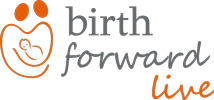Michel Odent: Protection of an Involuntary Process – A new revolutionary way of thinking about birth
Michel Odent’s over 60 years of practice and research in childbirth reveal that there is a huge lack of understanding of the physiology of birth and that we hinder the the unfolding of the involuntary process birth on a big scale.
Michel Odent describes the middle of the 20th century until today as the acceleration of the domination over nature, not only in childbirth, but in many disciplines and we have reached the limit. Having seen the big changes around birth in the last 60 years he understood how critical the period of birth is for the evolution of our species. The future of the human capacity to give birth is at risk. If the human species wants to survive we need a paradigm shift from the domination over nature to a symbiosis with nature. We need to understand the nature of birth in order to walk with it and not to neutralize it as we do with our practises today. Birth is an involuntary process that does NOT need support but protection from inhibitory factors that hinder the upfolding of the involuntary process birth.
About the speaker
Michel Odent is most likely the one person alive that has seen the most around childbirth. He is a pioneer thinker, yes even a legend in this field.
He has been in charge of the surgical unit and the maternity unit at the Pithiviers state hospital (1962–1985) and is the founder of the Primal Health Research Centre (London). In the 1970s he introduced the concepts of home-like birthing rooms and birthing pools in maternity hospitals.
He is the author of the first article in the medical literature about the use of birthing pools (Lancet 1983), of the first article about the initiation of lactation during the hour following birth, and of the first article applying the ‘Gate Control Theory of Pain’ to obstetrics. He created the Primal Health Research database (www.primalhealthresearch.com) and the website www.wombecology.com. He is the author of 14 books published in 23 languages and author (or co-author) of 92 articles listed in www.pubmed.com.

